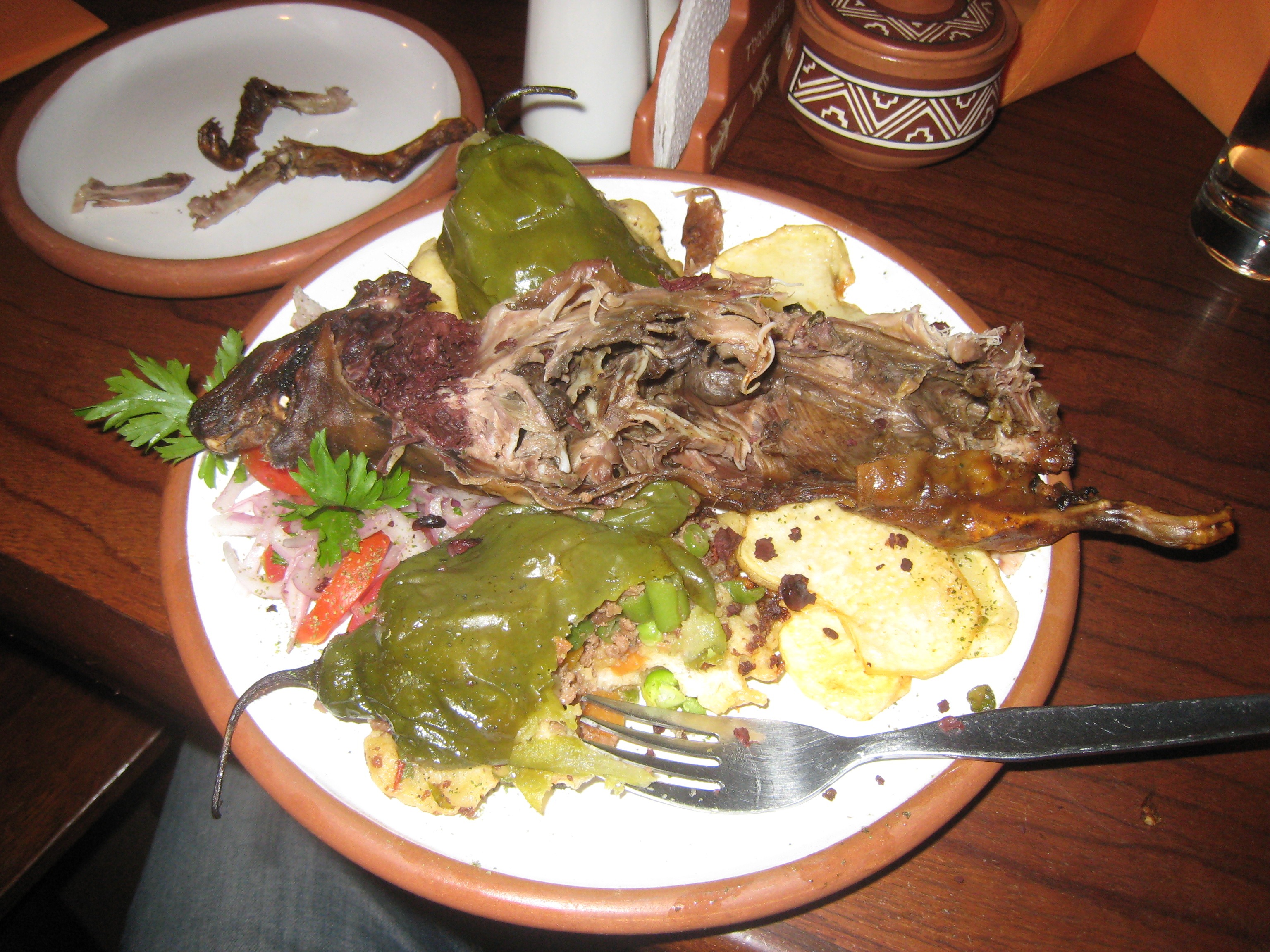Hamster tastes like a mix of rabbit and chicken, with a slightly gamey flavor. Curiosity about unique culinary experiences has led some individuals to ponder the taste of hamster meat.
As a small and common domestic pet, the thought of consuming hamster may be unsettling to some. Yet, for others, the curiosity around the cultural and culinary significance of consuming such meat is intriguing. Despite differing attitudes, it’s essential to understand that the consumption of hamster meat holds cultural, ethical, and legal implications.
Nevertheless, exploring the topic may offer insight into wider conversations about dietary habits, ethical consumption, and cultural diversity. We’ll discuss what hamster tastes like, cultural attitudes towards consuming unconventional meats, and the wider social and ethical implications of this practice.
Unveiling The Flavor Of Hamster Meat
Discovering the unique taste of hamster meat offers a blend of gaminess and slight sweetness, akin to dark poultry. With a tender texture, this delicacy is a niche experience for adventurous food enthusiasts.
Cultural Perception Of Consuming Hamster Meat
Hamsters are cuddly creatures that are usually kept as pets in many cultures around the world. However, there are a few regions where hamsters are not only seen as cute companions, but also as a source of food. The cultural perception of consuming hamster meat varies greatly, with some viewing it as a delicacy and others finding it taboo.
In certain parts of China, for example, hamster meat is considered a delicacy and is often featured in traditional dishes. The Chinese believe that consuming hamster meat can provide various health benefits, including improved digestion and increased vitality. Additionally, the unique flavor and tender texture of hamster meat are highly praised by those who enjoy it.
On the other hand, in Western cultures and many other parts of the world, the thought of eating a beloved pet like a hamster is met with considerable shock and disgust. It is perceived as unethical and socially unacceptable to consume hamsters or any other small pets.
Historical Context Of Hamster Consumption
The consumption of hamster meat is not a recent phenomenon and has been practiced for centuries in certain cultures. In fact, historical records indicate that hamsters were not always viewed as adorable pets, but rather as a valuable food source in times of scarcity.
One interesting historical context is the Hamster Feast, which occurred in the German city of Hamelin during the 16th century. It was a special event where the townspeople would gather to eat roasted hamsters, celebrating the successful extermination of a hamster population that had been infesting the city’s fields and causing significant crop damage.
Similarly, during times of famine and war, hamsters were often captured and consumed as a means of survival. In regions where hamster populations were particularly abundant, they would provide a much-needed source of protein to sustain communities during difficult times.
As societies developed and conditions improved, the consumption of hamsters gradually declined and transformed into the pet culture we know today. However, there are still some pockets of the world where hamster meat remains a part of local culinary traditions.
Nutritional Value Of Hamster Meat
When it comes to the nutritional value of hamster meat, it’s essential to understand its composition in terms of protein, fat, and calorie content. While consuming hamster meat may not be a common practice in most cultures, it’s important to explore the nutritional aspects of this unique meat.
Protein Content In Hamster Meat
Hamster meat is rich in protein. A 3-ounce serving of cooked hamster meat can provide approximately 20 grams of protein, making it a significant source of this essential nutrient. Protein is crucial for muscle repair and overall body function.
Fat And Calorie Content
The fat content in hamster meat is relatively low, with only a few grams per serving. Similarly, the calorie content is modest, contributing to a balanced diet when consumed in moderation.
Methods Of Cooking Hamster Meat
When it comes to the culinary world, the idea of consuming hamster meat may raise eyebrows and pique curiosity. Despite this, hamster meat has been used in traditional dishes in some cultures and has seen a resurgence in modern culinary experimentation.
Traditional Dishes Featuring Hamster Meat
In various regions, hamster meat has long been incorporated into traditional dishes. One such example is the use of hamster meat in indigenous tribes for its high protein content and unique taste. The meat can be stewed, grilled, or roasted and is often combined with local spices and herbs to create flavorful dishes.
Modern Culinary Approaches
Modern chefs and food enthusiasts have approached hamster meat with a spirit of innovation. While still a controversial ingredient, some have experimented with fusion cuisine, infusing hamster meat into unconventional dishes. For example, hamster meat may be used in sliders or incorporated into gourmet hot dogs, aiming to challenge perceptions and create a memorable dining experience.

Credit: petstant.com
Ethical And Legal Considerations
When it comes to discussing the topic of what hamster tastes like, it’s essential to consider both ethical and legal aspects. Understanding cultural perspectives, regulations, and restrictions surrounding the consumption of hamsters helps us navigate this subject with empathy and awareness.
Cultural Perspectives On Eating Hamsters
Hamsters are commonly known as popular household pets, particularly in Western societies. However, it’s important to recognize that there are cultures around the world where consuming certain animals, including hamsters, is considered acceptable.
In certain regions, hamsters are consumed as a source of protein and nutrition. This practice has been a part of their culinary tradition for generations. While it may seem unusual from a Western perspective, it’s crucial to respect and understand diverse cultural beliefs regarding food choices.
Regulations And Restrictions
When it comes to consuming hamsters, there are regulations and restrictions in place to ensure the ethical treatment of animals and protect public health. These regulations vary depending on the country or region.
In many countries, including the United States and the United Kingdom, it is illegal to consume hamsters due to their classification as companion animals. Laws are in place to prevent the exploitation and potential mistreatment of such animals.
Furthermore, there are strict regulations on the sale, breeding, and transportation of animals for consumption. These regulations aim to safeguard the welfare of animals, prevent the spread of diseases, and ensure food safety.
It’s important to note that violating these regulations can lead to legal consequences, including fines and penalties. Additionally, ethical considerations must be taken into account to promote respect for the lives of animals and ensure their well-being.
Summary
In summary, the question of what hamster tastes like involves ethical and legal considerations. Understanding cultural perspectives on consuming hamsters and recognizing the regulations and restrictions in place allows us to approach this topic with sensitivity and respect for different beliefs. By acknowledging the ethical treatment of animals and abiding by the laws surrounding their consumption, we can make informed choices and foster a more compassionate world.
Alternative Sources Of Exotic Meat
Looking for alternative sources of exotic meat? Discover the unique taste of hamster, a lesser-known but flavorful option for adventurous food enthusiasts.
Exploring Unique Meat Options
When considering alternative sources of exotic meat, it opens up a world of unique culinary experiences. For the adventurous palate, exploring various options beyond the conventional can provide surprising flavors and textures.
Comparison With Hamster Meat
Drawing a comparison with hamster meat can be intriguing. While hamster meat has a mildly gamey taste similar to rabbit, other exotic meats offer diverse flavors.
Exploring unique meat options allows for a culinary adventure that goes beyond familiar choices. Comparing with hamster meat showcases the variety in flavors and textures available in the realm of exotic meats.
- Emu: Lean and slightly sweet meat
- Kangaroo: Low in fat and high in protein
- Alligator: Mild flavor reminiscent of fish and chicken
Each alternative meat offers a different experience, allowing for a diverse selection of flavors to tantalize the taste buds.
Unique Meat Comparison
Comparing unique meats with hamster, Emu is lean with a mildly sweet flavor, while Kangaroo is protein-rich and low in fat. Alligator, on the other hand, presents a mild taste akin to fish and chicken.

Credit: www.youtube.com

Credit: www.mikedownsouth.com
Frequently Asked Questions Of What Does Hamster Taste Like
What Is The Taste Of Hamster Meat Like?
Hamster meat is often described as gamey, similar to rabbit. It can be tough and lean, with a slightly nutty flavor. Cooking methods can vary the taste, but it is generally not a common choice for consumption.
Can You Eat Hamsters As Food?
While not recommended or common in most cultures, some countries have consumed hamster meat. It is crucial to consider ethical concerns and health risks, as hamsters are often kept as pets rather than for food purposes.
Is Eating Hamster Meat Safe For Humans?
Consuming hamster meat poses risks of disease transmission and potential health hazards. It is crucial to follow proper food safety guidelines, including thorough cooking and sourcing meat from reputable and regulated sources to minimize these risks.
Conclusion
To conclude, discovering the taste of hamster is an intriguing topic that may pique curiosity. While some cultures include it in their culinary traditions, it is important to approach such practices with sensitivity and respect for ethical considerations. Ultimately, the decision to consume hamster meat is a personal one that should be made conscientiously, taking into account cultural, ethical, and individual values.
Exploring new flavors and gastronomic experiences can be enriching, but always remember to prioritize the well-being of animals.
- understanding hamster body language - April 22, 2024
- In The Wild: Exploring The Lives Of Wild Hamsters - April 22, 2024
- Leaky Bladders And Urinary Woes: Understanding Hamster Urinary Issues - April 22, 2024


